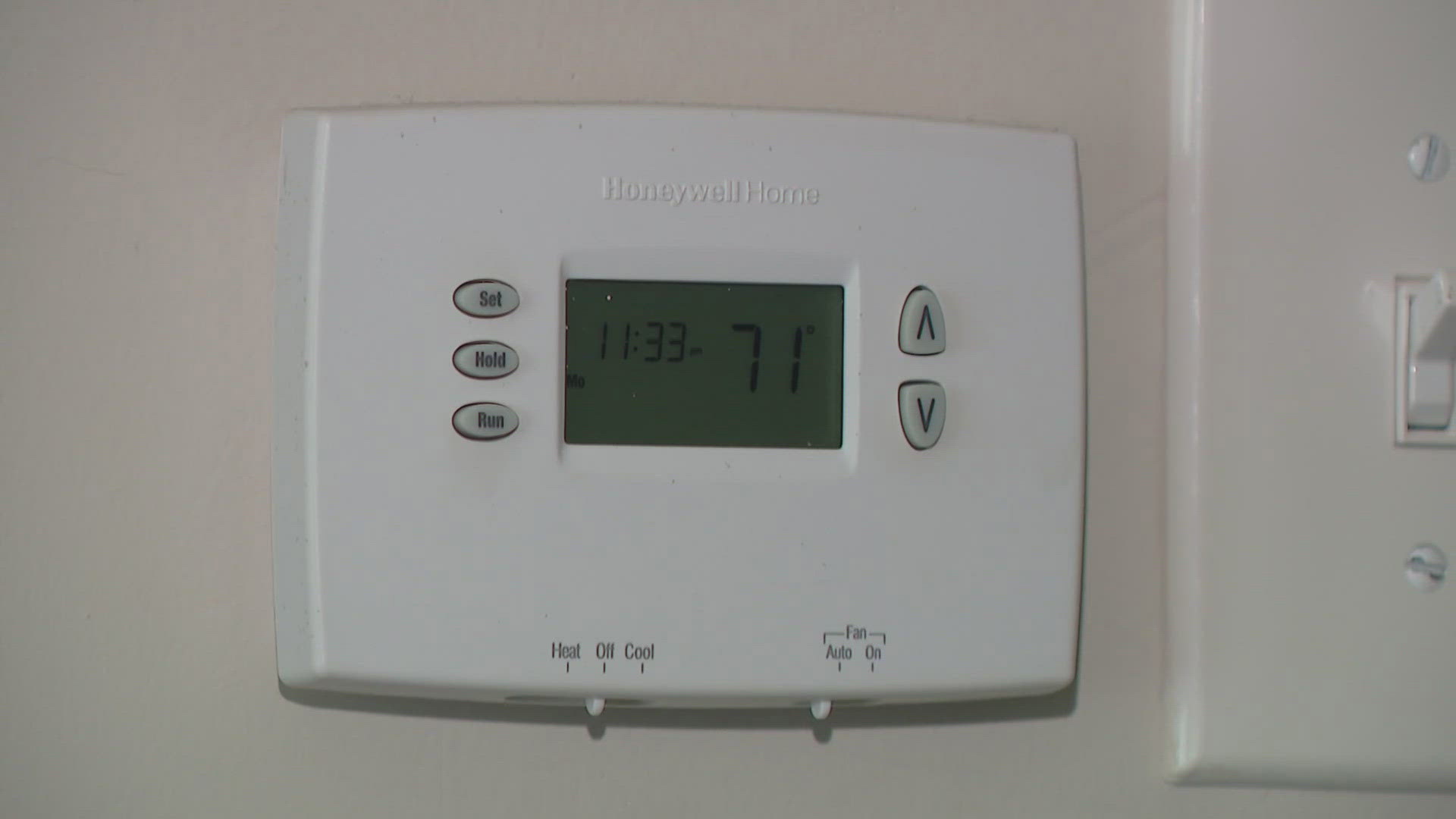COLUMBUS, Ohio — Naomi Pearce pays careful attention to how much electricity she is using in her 1,000-square-foot apartment on the east side of Columbus.
Every morning, she will check her weather app and open her windows if it is nice enough outside. Most days, she keeps her lights off while she works from home.
“It just gets to a point where you’re just like, 'What am I going to do, I have to have electricity,'” Pearce said.
The stress about her energy usage started a few months after moving into her apartment when she got her utility bill for the month of December and was shocked at the $230 price tag. At the time, she was still spending her days at an office and only at home in the evenings.
“Unless my cat's having a party when I'm gone, there's no reason for that bill to be that high,” she said.
Pearce took a closer look at her bill and looked up the company that sent it to her, American Power and Light. That is when she learned about submetering.
“I noticed that because the average resident who lives in Columbus is going to go through AEP,” she said.
American Power and Light (APL) is one of many active submetering companies in central Ohio. It services 23,000 units in central Ohio.
Here’s how submetering works: A private company contracts with landlords or property managers to buy utilities like electric, gas and water at a bulk price, and resell them to residents.
APL told 10TV that it calculates its bills using the same rights as public utilities. Pearce’s bill does match AEP’s price, according to AEP’s submetering bill calculation spreadsheet, where people can compare their rates.
Tenants may also be charged fees for utility usage in common spaces like lobbies, gyms and streetlights.
Submetering is unregulated in Ohio, so there is no oversight.
Companies like APL are not considered public utilities, according to the Public Utilities Commission of Ohio (PUCO), so they are not subject to any set of rules.
“When you're submetered, you don't have any rules or regulations. You can set a price and you don't have to provide protections,” said Maureen Willis, agency director of the Office of the Ohio Consumers’ Counsel (OCC).
The OCC has been fighting for consumer protection when it comes to submetering.
Willis explains residents who pay their bills to submetering companies versus public utilities lose out on many rights including the ability to shop around and access energy assistance programs.
“We believe submetered consumers should have the rights that every other consumer has. This is just a matter of fairness and equality,” she said.
OCC has asked PUCO to intervene in a case filed by AEP against a submetering company. PUCO decided submetering companies do not act as public utilities and would not have to be regulated as such.
“If the rates are not fair and reasonable you have recourse with the PUCO you can file a complaint, you can take other legal action. With submeters, you don't have any recourse,” Willis said.
AEP argued that companies billing for utilities should have to follow the same rules they do. AEP is in the process of appealing that decision and shared the following statement with 10TV.
“We have consistently urged the PUCO and other policymakers in Ohio to protect customers and require submetering companies to follow similar consumer protection rules that regulated utilities must follow. We believe all customers in our service territory should be able to easily understand their bill and get all of the same regulatory protections when offered utility service by someone other than their landlord. Access to utility assistance programs, flexible payment arrangements and other protections shouldn’t depend on what a landlord decides to offer. We have asked the Ohio Supreme Court to recognize that submetering is not defined in Ohio law and provide more clarity about the rules submetering companies should follow since they are acting like a public utility.”
Pearce wants other renters to understand submetering and read the fine print before signing a lease.
“It's more than having granite countertops, vinyl wood flooring and having that space and having that soft girl aesthetic you need to know what you're paying because you as a tenant have a right to know,” she said.
The PUCO declined to comment for this story, citing the pending litigation.
If you are concerned about your rights as a submetered resident, right now, the OCC said the only recourse is to contact your politicians or submit a complaint to the Ohio Attorney General’s Office.

